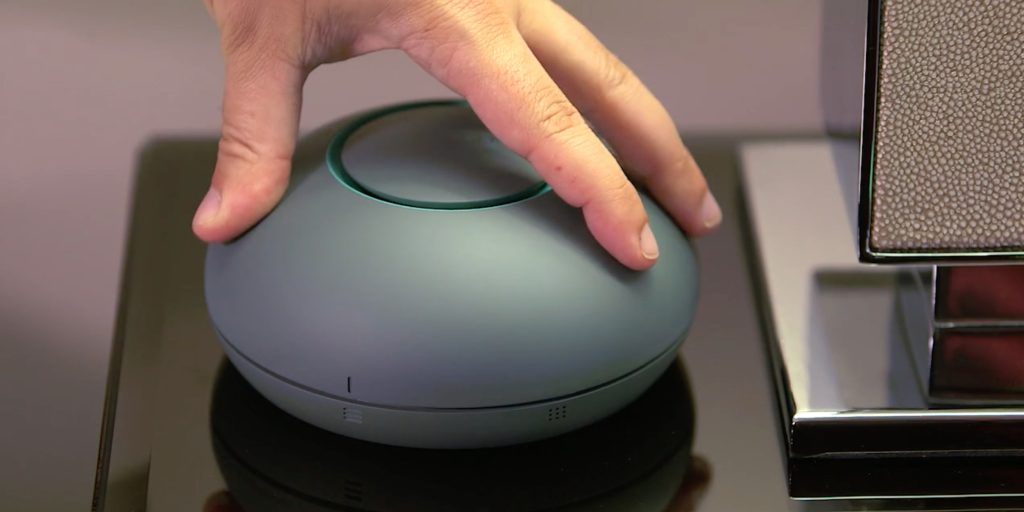Table of Contents
The Continuous stomping from your upstairs neighbors can quickly turn your sanctuary into a warzone of noise. While the urge to retaliate might be tempting, this guide will equip you with effective and ethical strategies to address the issue and restore peace to your living space. We’ll delve into communication techniques, explore soundproofing solutions, and discuss legal options, all while emphasizing respectful and responsible approaches.
Why do Upstairs Neighbors Stomp?

Your upstairs neighbors could be causing a racket for all sorts of reasons. Often, they may not even be aware that their daily activities, like pacing around or rearranging their furniture, are creating such a disturbance below.
The structure of the building itself could be a culprit, with insufficient sound insulation amplifying every footstep and conversation to seem much louder than intended. The presence of energetic children, playful pets, or the frequent shifting of heavy items can further contribute to the cacophony.
Lifestyles and schedules vary greatly, meaning that what’s a late-night movie marathon for them could be your sleepless nightmare. Moreover, they might simply be accustomed to their level of noise, blissfully unaware of the echoes that travel down to your space.
While it’s natural to wonder about the source of the noise, jumping to conclusions that it’s intentional without clear evidence might not be the fairest approach.
How does Upstairs neighbor stomping impact your quality of life?
Living beneath stomping upstairs neighbors can profoundly affect your sense of peace and well-being, something I’ve unfortunately had firsthand experience with.
The ordeal turned my home from a sanctuary into a source of constant frustration. Far from being a trivial nuisance, the relentless noise was a significant intrusion on my life.
For starters, the persistent thudding and heavy footfalls weren’t just mildly irritating—they made it nearly impossible to unwind after a hectic day or focus on tasks that needed quiet. Evenings, which should have been a time for relaxation, were often marred by the disruptive overhead noise.
Worse still were the disruptions during the night. Unexpected loud noises at late hours wreaked havoc on my sleep schedule, leaving me tossing and turning instead of resting. The lack of quality sleep led to a cascade of negative effects: increased fatigue, diminished productivity, and even noticeable dark circles under my eyes.
It’s a challenge that goes beyond mere inconvenience, impacting both physical and mental health.
How to deal with Upstairs Neighbors Stomping?
Dealing with the clatter and thump of upstairs neighbors can test anyone’s patience, turning your haven of peace into a battleground of noise. But fear not! Here’s how you can restore tranquility to your living space with eight thoughtfully crafted strategies to address those pesky overhead disturbances.
1. Initiate a Friendly Dialogue
Begin with the simplest and often most effective approach: talk to your neighbor. A heart-to-heart conversation can work wonders. Approach them in a friendly manner, sharing how the noise affects you and kindly request their cooperation to minimize it. They might not realize their activities are disruptive. If face-to-face dialogue feels daunting, consider leaving a considerate note as an alternative.
2. Engage Your Landlord

Should personal attempts falter, it’s time to loop in your landlord. Document your experiences with the noise—detailing its duration, intensity, and your efforts to amicably resolve the matter directly with your neighbor. Present this information to your landlord, who can then address the issue more formally, potentially invoking lease stipulations regarding noise disruptions.
3. Explore Personal Sound Barriers
Sometimes, coexisting with noise is the immediate solution. Earplugs can be a great ally, offering a buffer against the overhead stomps. Opt for noise-canceling variants for maximum peace. Remember, this method is more about managing your immediate comfort rather than solving the root cause.
Read also: Why Are Dr. Horton Homes So Cheap?
4. Invest in a White Noise Machine

A white noise machine can be a game-changer, masking the intrusive sounds with soothing audio. These devices are simple to use and can significantly improve your quality of life, especially during sleep hours or when you need to concentrate.
5. Soundproof Your Sanctuary
Consider soundproofing your ceiling to dampen the noise from above. Although it might come with a cost, the tranquility regained can be worth every penny. Materials like mineral wool insulation and specialized drywall can dramatically reduce noise levels, making your space serene once again.
6. Respond in Kind (With Caution)
A more direct approach could be to “reply” with your nose, making your upstairs neighbors aware of their impact. However, tread carefully with this method to avoid escalating tensions. Utilize it as a last resort and in a manner that communicates your distress rather than seeking revenge.
7. Law Enforcement as a Last Resort
If all else fails and the noise constitutes a severe disturbance, involving the police may be necessary. Ensure you have documented evidence of the disruption to present a strong case. This step should be considered only when you’ve exhausted all other avenues.
8. Contemplate Relocation
When the situation seems irredeemable and affects your well-being, moving to a more peaceful setting might be the best course of action. Seek out dwellings with better sound insulation or opt for top-floor apartments to avoid overhead noise.
Laws Against Noisy Upstairs Neighbors

- Quiet Hours: Observe 10:00 PM to 7:00 AM as quiet hours.
- Noise Reduction Measures: Use rugs, furniture pads, and soundproofing materials.
- Volume Control: Keep audio devices and TVs at reasonable volumes, especially during quiet hours.
- Footstep Consideration: Be mindful of footsteps, and use soft footwear or rugs to minimize noise.
- Communication and Mediation: Resolve issues through open communication; consider community mediation services.
- Enforcement and Penalties: Violations may result in warnings, fines, or penalties, depending on severity.
- Landlord Responsibilities: Landlords should inform tenants, address noise complaints promptly, and provide soundproofing tips during leasing.
- Community Education: Regularly share noise reduction tips and guidelines to enhance awareness and encourage proactive noise prevention.
Can I record my neighbor’s noise?
Yes, recording disruptive noise from your neighbors can serve as evidence in discussions or formal complaints. Yet, it’s crucial to respect privacy laws and regulations specific to your area. Always consider the legal and ethical implications of recording in shared spaces.
Recording the excessive noise from your upstairs neighbors can provide valuable evidence when trying to resolve the issue. However, it’s essential to approach this process responsibly and legally. Here’s a step-by-step guide to help you record the stomping sounds effectively:
How to record the Upstairs Neighbors Stomping?
Step 1: Choose the Right Recording Device
Choosing a recording device that can capture high-quality audio is the first step. You can make use of a laptop with integrated microphones, a digital voice recorder, or even a smartphone. Verify that the gadget has sufficient battery life and storage capacity to record for a long time.
Step 2: Find the Best Recording Location
Determine which part of your house is experiencing the loudest stomping noises. This usually occurs close to the walls or ceiling that border the living area of your upstairs neighbors. As much as you can, place the recording equipment as close to the noise source as you can without blocking it with furniture or other items.
Step 3: Test the Recording Setup
Before attempting to record the actual stomping, conduct a test run to ensure that your setup is working correctly. Play some loud music or create intentional noise to check if the recording device is capturing the sound. Adjust the device’s position or settings as needed until you’re satisfied with the audio quality.
Step 4: Record During Peak Noise Hours
Observe the patterns of your upstairs neighbors’ stomping and identify the times when the noise is typically at its worst. This could be early in the morning, late at night, or during certain hours of the day. Plan to record during these peak noise hours to capture the most compelling evidence.
Step 5: Document the Recordings
As you record the stomping sounds, make sure to document the date, time, and duration of each recording session. You can use a notepad, a digital document, or even a voice memo on your recording device. This documentation will help establish a timeline and pattern of the noise disturbances.
Step 6: Respect Privacy Laws
It’s crucial to respect privacy laws when recording noise from your neighbors. Avoid capturing any private conversations or activities that could be considered a violation of their privacy. Focus solely on recording the stomping sounds and any other excessive noise that disrupts your living environment.
Step 7: Review and Organize the Recordings
After each recording session, take the time to review the audio files. Listen carefully to ensure that the stomping sounds are clearly audible and that the recordings accurately represent the level of noise you’re experiencing. Organize the recordings by date and time for easy reference.
Step 8: Use the Recordings Responsibly
The purpose of recording your Upstairs Neighbors Stomping is to provide evidence when seeking a resolution to the noise issue. Use the recordings responsibly and only share them with the appropriate authorities or mediators, such as your landlord, property management company, or local authorities handling noise complaints.
What to do when the upstairs neighbor stomps at night?
There are several ways to get rid of them if your upstairs neighbors stomping at night:
Quick Fix for Tonight:
If the stomping is driving you crazy right now, grab a pair of earplugs to muffle the noise. It might not be a permanent solution, but it can provide some relief for the night.
Friendly Chat:

In the morning, consider having a friendly chat with your upstairs neighbor. They might not be aware of the noise they’re making, and a polite conversation can go a long way. Share your concerns and see if you can find a compromise that works for both of you.
Formal Complaint to Management:
If the issue persists, and the friendly approach doesn’t yield results, it might be time to escalate the matter. Reach out to the building management or landlord to file a formal complaint. They can intervene and take steps to address the noise disturbance.
Reciprocal Noise:
If all else fails, and you’ve had enough of the stomping, you could consider a more assertive approach. Instead of suffering in silence, respond with a bit of noise of your own. However, opt for a diplomatic solution like using a rubber hammer or a subwoofer to gently convey that the noise is affecting you too.
People also ask
What to do if your upstairs neighbor stomps?
Quick fix: Use earplugs tonight. Long-term: Talk to them politely, and escalate to management if needed.
How can I quiet my upstairs neighbors’ footsteps?
Earplugs for now. Politely discuss the noise with them. If it persists, contact management.
How do you politely tell your neighbors to stop stomping?
Approach them kindly, and share your concern about the noise. Suggest solutions together.
How do you deal with rude, noisy upstairs neighbors?
Start with polite communication. If unsuccessful, involve building management for resolution.
Final Words – Upstairs Neighbors Stomping
Although having loud neighbors can be upsetting and irritating, there are several practical and lawful ways to deal with the problem. You may restore your serenity and establish a more peaceful home by making communication a priority, looking into soundproofing alternatives, and involving the appropriate authorities when needed. Retaliation is never the solution, so keep in mind that finding polite ways to resolve conflicts will ultimately benefit all parties.




